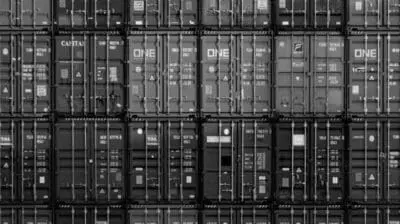Carbon management is the FMCG sector’s most valuable and under-used asset

The fast moving consumer goods sector is in the midst of a sustainable transformation – and businesses can’t afford to lag behind.
Carbon reporting legislation is expanding worldwide, requiring more fast-moving consumer goods (FMCG) businesses to report their climate impacts.
Some of this legislation – including the TCFD, the UK’s SECR, and the soon-to-be-implemented CSRD– requires businesses to disclose scope 3 emissions. These emissions, which originate from upstream and downstream activities in a business’s value chain, make up as much as 90% of a business’s carbon footprint.
What carbon reporting legislation does your business need to comply with?
Answer five quick questions to find out.
Inaccurate reporting poses legal and business risks for FMCG businesses
In January 2023, the UK’s Competition and Markets Authority (CMA) announced it would scrutinize sustainability claims made by FMCG businesses to ensure they follow UK consumer protection law. If the CMA determines that businesses are making misleading sustainability claims, the Authority may take enforcement action.
This is yet another example in a larger trend: legislators, like consumers, are holding businesses to a higher standard when it comes to verifying their sustainability claims. This makes accurate, comprehensive, and scientifically-sound carbon calculations a business necessity.
However, FMCG businesses – especially the largest among them – have large value chains, which complicates the already-tricky process of calculating and reporting value chain emissions.
The complexity is due in part to the difficulty of collecting data from individual suppliers. This is particularly true for large enterprises, whose suppliers often number in the thousands.
A survey from Boston Consulting Group found that businesses calculating emissions manually had an average error rate of up to 40%. The failure to account for nearly 40% of their emissions means that businesses inevitably report incomplete emissions measurements – an accuracy gap that can potentially result in legal non-compliance and allegations of greenwashing.
Greenwashing – whether it’s intentional or unintentional – can lastingly damage a brand’s reputation and expose it to legal action.
In addition, any climate impact reduction actions taken based on incomplete information will have incomplete results, slowing the global effort to reach the Paris Agreement climate targets.
Credible, verifiable carbon measurement will help FMCG businesses stay compliant, minimize risks, and meet sustainability targets.
FMCG businesses that manage carbon will earn competitve advantages
For FMCG businesses, the benefits of accurate carbon reporting go beyond compliance and risk mitigation.
At a time when 77% of consumers say it’s important for brands to be environmentally responsible, businesses in this sector have much to gain from successful sustainability branding.
A recent McKinsey study determined that brands with a credible sustainability focus in their brand identity have seen effective growth rates.
Flying Tiger Copenhagen used carbon accounting to reduce emissions and earn sustainable certification
Read the customer story
The business benefits, risk avoidance, and legal compliance are all built on the cornerstone of accurate emissions measurement.
FMCG businesses that haven’t yet begun measuring their emissions should start immediately, to get ahead of reporting legislation and consumer trends.
Businesses that already measure their emissions would do well to check that these measurements are credible. Are they based on scientific methods? Do they cover the full value chain? Are they transparent and auditable?
Consumers are already asking these questions. By choosing a trustworthy carbon management partner, FMCG businesses can ensure they have compliant, greenwashing-resistant answers that will fortify their brand for the future.
Carbon measurements with industry-leading accuracy
Normative’s carbon accounting engine draws from 30 million data points to provide comprehensive, precise emissions measurements. Empower your business to stay compliant and competitive.











